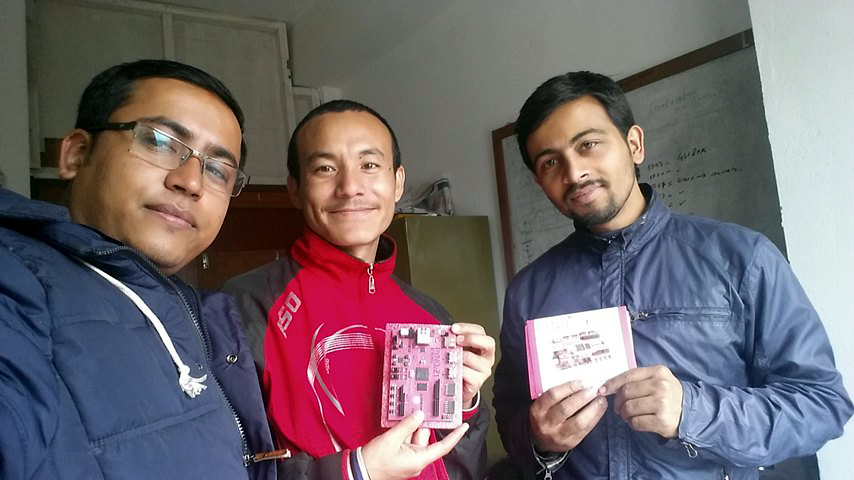The story of a group of passionate young engineers who have envisioned to make Nepal an outsourcing hub for hardware
It was 2013 when the two engineering students in their undergraduate level: Krishna Gaihre and Sabin KC, full of passion and interest in developing hardware segment, came with a thought to work together in the sector, at a large scale. They formally started the company as Digitronix, a fusion of ‘Digital’ and ‘Electronics’. The engineering company is basically focused on Research & Development (R&D) on electronics and hardware equipment.
The group of geeks is now mainly working on designing and manufacturing of the hardware.
They are developing products on their own, as well as providing various services to different organizations and education institutions. They are on a mission to innovate something in the digital electronics sector. Along with the research works, they also provide training to faculties and students and assist them conduct laboratory works in a new methodology.
As of latest, they are working on Field Programmable Gate Array (FPGA) along with working on the Arduino platform, the environments to design and test multiple designs and requirements.
“In Universities abroad, engineering students have to do a lot of research and development, but in the case of Nepal, theory is focused much and no emphasis is given to laboratory works. Instead, engineering should be focused on the design aspect. Feeling the lack in the university syllabus, we are pushing colleges for the same,” says Gaihre. “Though electronics is a huge field all across the world, it is yet unexplored in Nepal. So, we started the company aiming to create a number of opportunities in the sector,” he adds.
Currently, they are developing a system for measuring real-time humidity and temperature that would be used in weather stations and would keep a record of the data on a log. They are also designing machines for threading the beads (potey), along with developing a smart curtain control system, that will make it easy to open and close the curtains, using voice-commands, or mobile apps.
Since there is almost zero focus on research and development part in Nepali colleges, Digitronix Nepal also provides trainings to the faculties of various engineering colleges, as well as the students. Till now, they have set up made Memorandum of Understanding (MOU) with 8 colleges in Kathmandu and helped colleges set up labs for research and development.
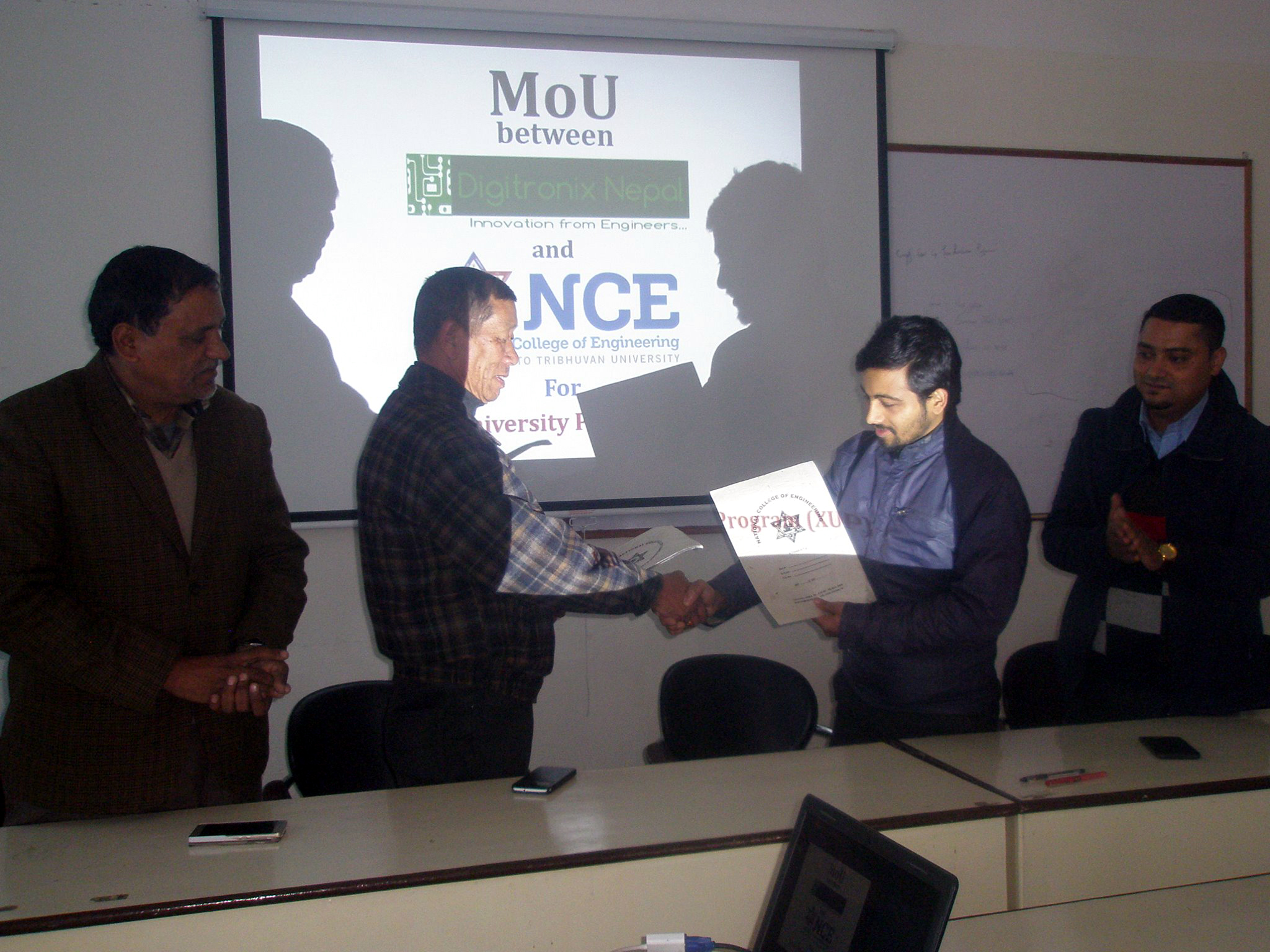
They too have collaboration with Xilinx Inc., which, after developing new FPGA boards, distributes to the Academics and professionals for testing. With the MoU with Digitronix Nepal, various Nepali engineering colleges have been provided with the FPGA boards to carry out lab works .
They too have designed courses and tutorials for FPGA, Verilog HDL Programming for Beginners with Xilinx ISE Design Suit, and interested students from all over the world can pursue the certified courses going through Udemy.com, an online learning platform.
“If we can explore jobs in this field, we can be globally competent, and can do outsourcing work on hardware, as is done in the software sector in Nepal. Our ultimate mission is taking hardware to the same level of software, and create a lot of job opportunities in the electronics field,” says Gaihre, adding, “If we can outsource any works for some big companies, it would create huge opportunities in Nepal.”
Challenges
Involved in the R&D sector in Nepal, the most striking challenge for them is to set a business and market some designs of their own, so that they would sustain. “It is still challenging for us to maintain sustainability,” says Gaihre. “Those coming to the field should be dedicated if they are to succeed,” he adds.
It was challenging for Digitronix Nepal to approach the colleges for setting the R&D labs in their institutions, and they are not yet showing interest to invest in R&D.
As opening Digitronix is an issue of self-interest, and their own passion dragged them to the work, they have been able to accept the challenges easily. “We are working with a thought that if we don’t work for the development of electronics sector in Nepal, nobody else would. We are taking the work in an organized manner so that we can further create opportunities, ultimately becoming an example of R&D in engineering in Nepal. Because of lack of research and development, Nepali engineering colleges have not been able to give quality. We have been doing all this to develop the ecosystem,” Gaihre mentions.
They also have conducted various seminars bringing together the stakeholders concerned, and the electronics students of Nepal. These programmes sought to develop an ecosystem for hardware in Nepal, and make the stakeholders initiative from their positions to create a positive environment to generate opportunities.
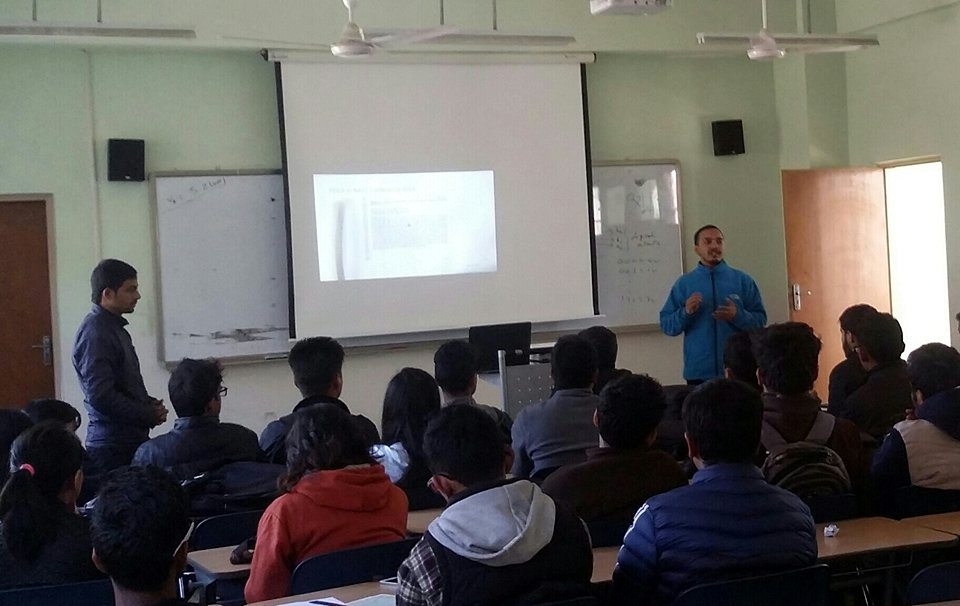
Digitronics Nepal has been providing its service to the private colleges on a subscription basis and generating some amount of revenue to keep the company moving.
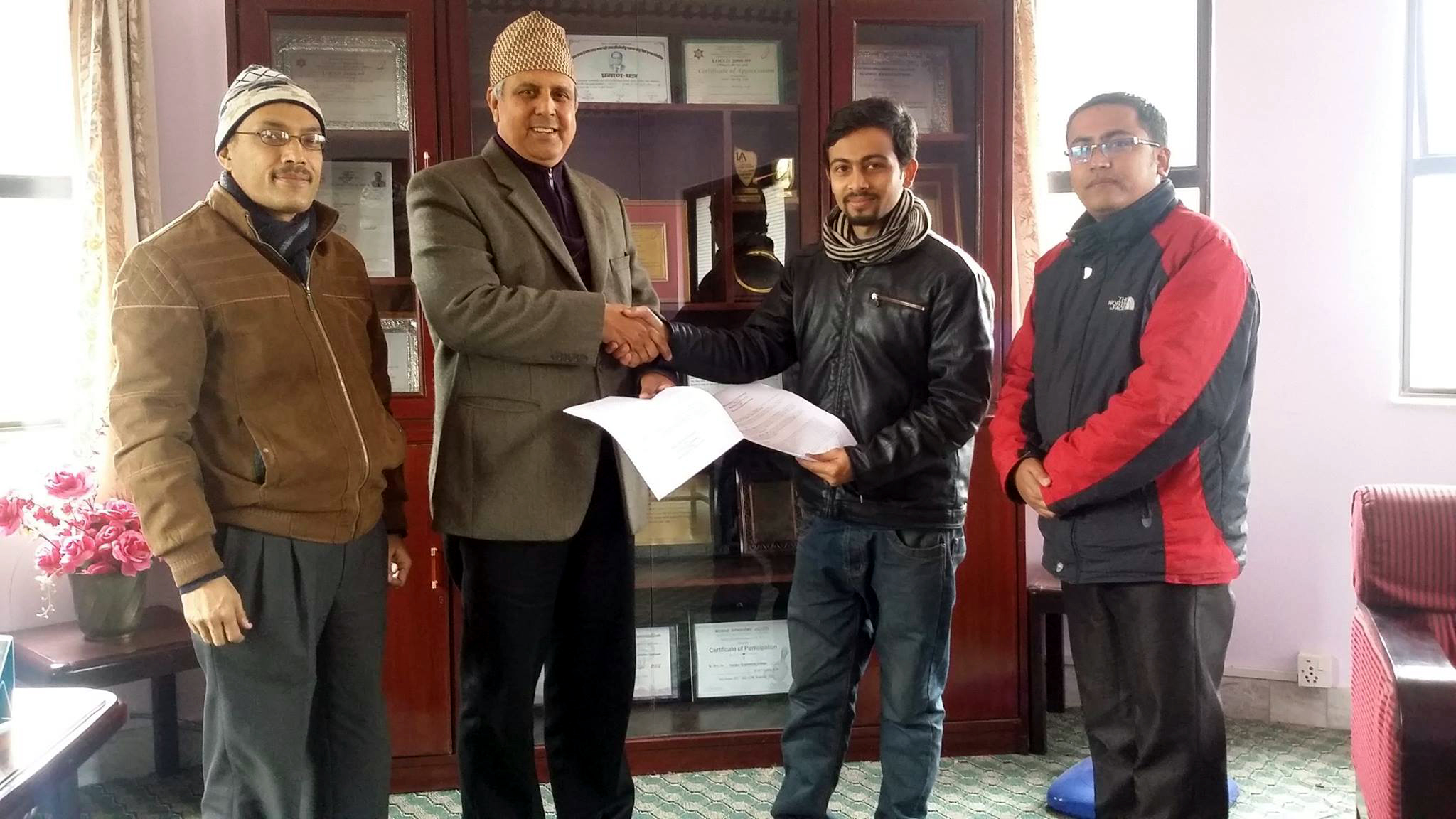
Skill gap in students, and demand-supply gap in human resources required for industries
There is an extreme shortage of quality and industry-ready human resources in the engineering sector of Nepal, shares Krishna from his own experience. He also mentions of his experience of not getting desired and qualified employee in the market.
He also points out a trend of engineering degree becoming similar to the arts or commerce, and students just doing rote learning to pass the exams. “The lab works have not been made effective due to lack of necessary environment to make the students innovative and creative. There are no project works that make students to brainstorm ideas and develop skills that could make them industry ready. They are not learning what they are required to,” he shares.
“Providing a learning platform in the colleges for FPGA has helped develop an interest in students to pursue practical works, generate ideas and develop their skills. We have seen that our collaboration with the colleges have developed a feeling in students that electronics sector is a competent one, and the students can market their skills globally,” says Gaihre.
The Future
They are working in such a way that they will be able to take their own product to the market. They want to generate opportunities in this field in Nepal itself and set an example that engineers too can be job creators, not just job seekers.
For a person in R&D, and inventing something new, they have to face the question from everywhere on what they are doing, and what the output will be. “We often get ambushed with such questions from friends, families, and seniors on why we are doing this. But, we are here to bring a difference and achieve something. We won’t stop no matter whatever challenges come our way,” he says.
Added to this, they are hopeful that their courses recently Published in Udemy will provide them with a recognition, and make easy to build approaches to foreign companies.
To the engineering students:
“To overcome the present situation of unemployment of engineering graduates, the students should put study in their heart and soul in the 4 years of duration when they are in colleges. There are many students who study just for a degree. These sort of students increase the rate of unemployment in the market. They should build-up their interest in their study, and feel that they have to do it, they can do it, and focus more on practical,” advises Gaihre to the engineering students.
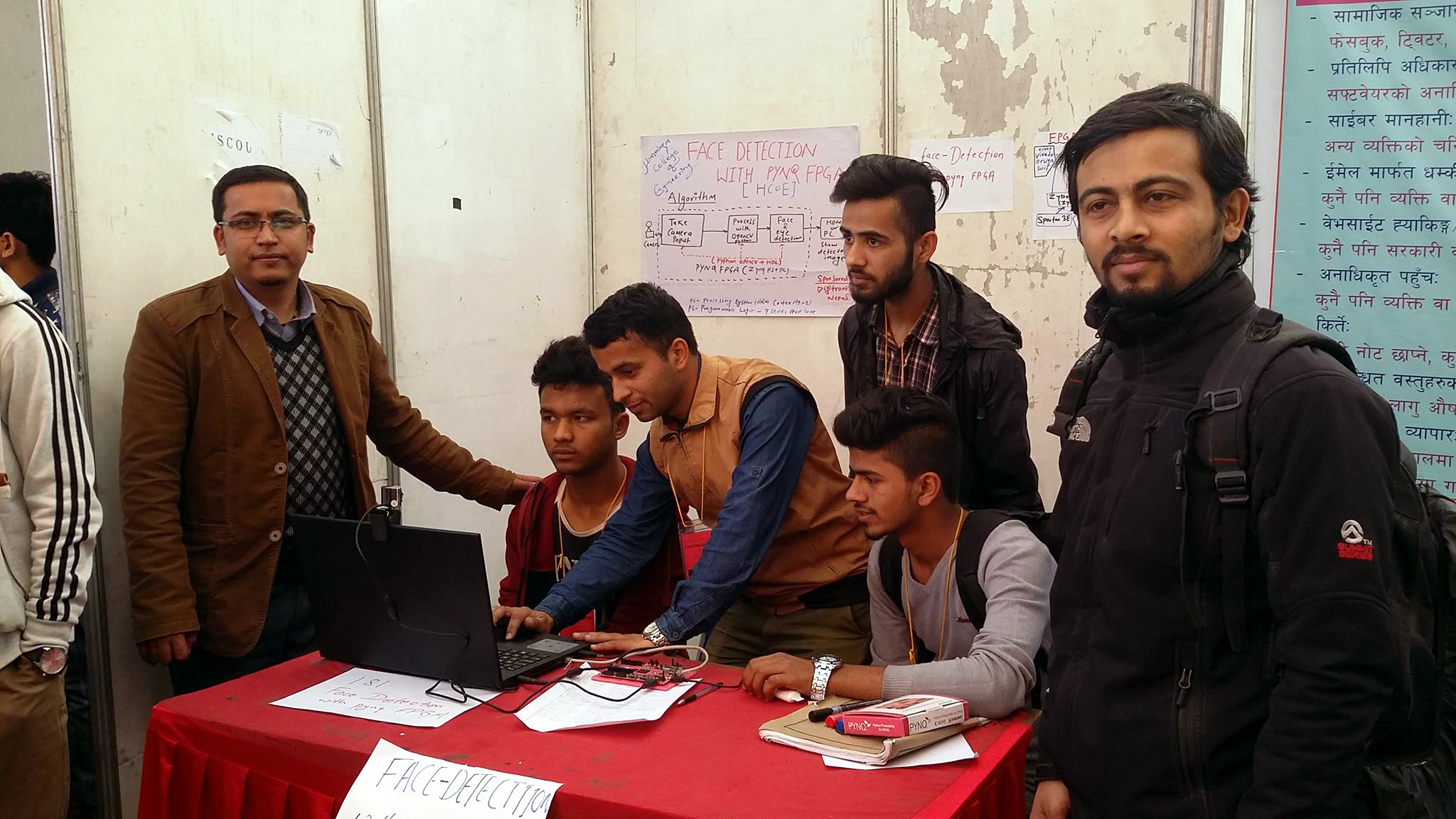
To the aspiring entrepreneurs:
“You need to start working in the field that you are keenly interested. If you plan to work on a field that you are not interested, you can’t go far. You too need to develop the skills that your work wants. If you can do so, you can push your startup idea,” he says to the budding entrepreneurs.
Startups for a better Nepal!
Presentation: Basanta Kumar Dhakal

